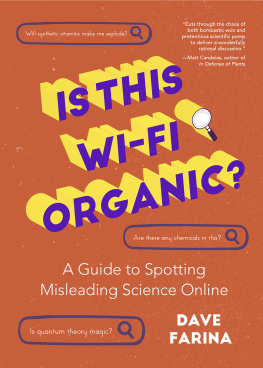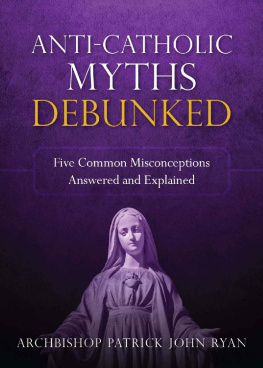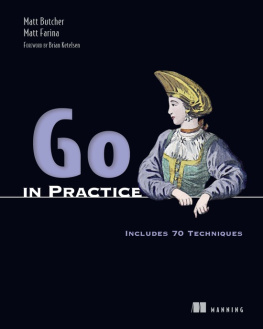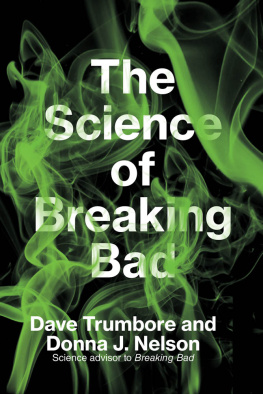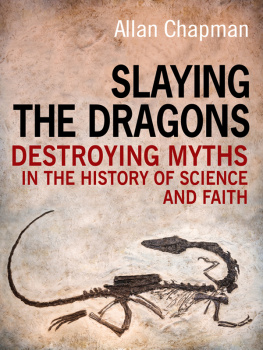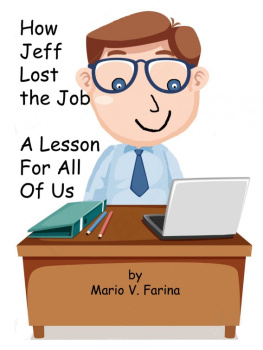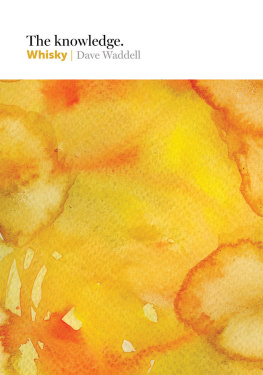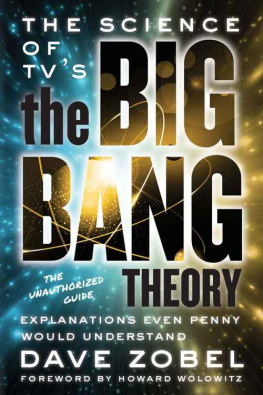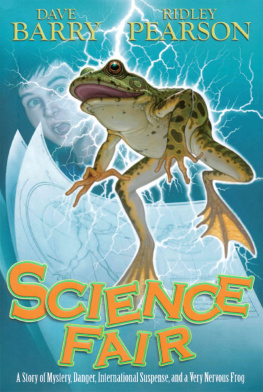Dave Farina - Is This Wi-Fi Organic?: A Guide to Spotting Misleading Science Online (Science Myths Debunked).
Here you can read online Dave Farina - Is This Wi-Fi Organic?: A Guide to Spotting Misleading Science Online (Science Myths Debunked). full text of the book (entire story) in english for free. Download pdf and epub, get meaning, cover and reviews about this ebook. year: 2021, genre: Romance novel. Description of the work, (preface) as well as reviews are available. Best literature library LitArk.com created for fans of good reading and offers a wide selection of genres:
Romance novel
Science fiction
Adventure
Detective
Science
History
Home and family
Prose
Art
Politics
Computer
Non-fiction
Religion
Business
Children
Humor
Choose a favorite category and find really read worthwhile books. Enjoy immersion in the world of imagination, feel the emotions of the characters or learn something new for yourself, make an fascinating discovery.
- Book:Is This Wi-Fi Organic?: A Guide to Spotting Misleading Science Online (Science Myths Debunked).
- Author:
- Genre:
- Year:2021
- Rating:4 / 5
- Favourites:Add to favourites
- Your mark:
- 80
- 1
- 2
- 3
- 4
- 5
Is This Wi-Fi Organic?: A Guide to Spotting Misleading Science Online (Science Myths Debunked).: summary, description and annotation
We offer to read an annotation, description, summary or preface (depends on what the author of the book "Is This Wi-Fi Organic?: A Guide to Spotting Misleading Science Online (Science Myths Debunked)." wrote himself). If you haven't found the necessary information about the book — write in the comments, we will try to find it.
Dave Farina: author's other books
Who wrote Is This Wi-Fi Organic?: A Guide to Spotting Misleading Science Online (Science Myths Debunked).? Find out the surname, the name of the author of the book and a list of all author's works by series.
Is This Wi-Fi Organic?: A Guide to Spotting Misleading Science Online (Science Myths Debunked). — read online for free the complete book (whole text) full work
Below is the text of the book, divided by pages. System saving the place of the last page read, allows you to conveniently read the book "Is This Wi-Fi Organic?: A Guide to Spotting Misleading Science Online (Science Myths Debunked)." online for free, without having to search again every time where you left off. Put a bookmark, and you can go to the page where you finished reading at any time.
Font size:
Interval:
Bookmark:

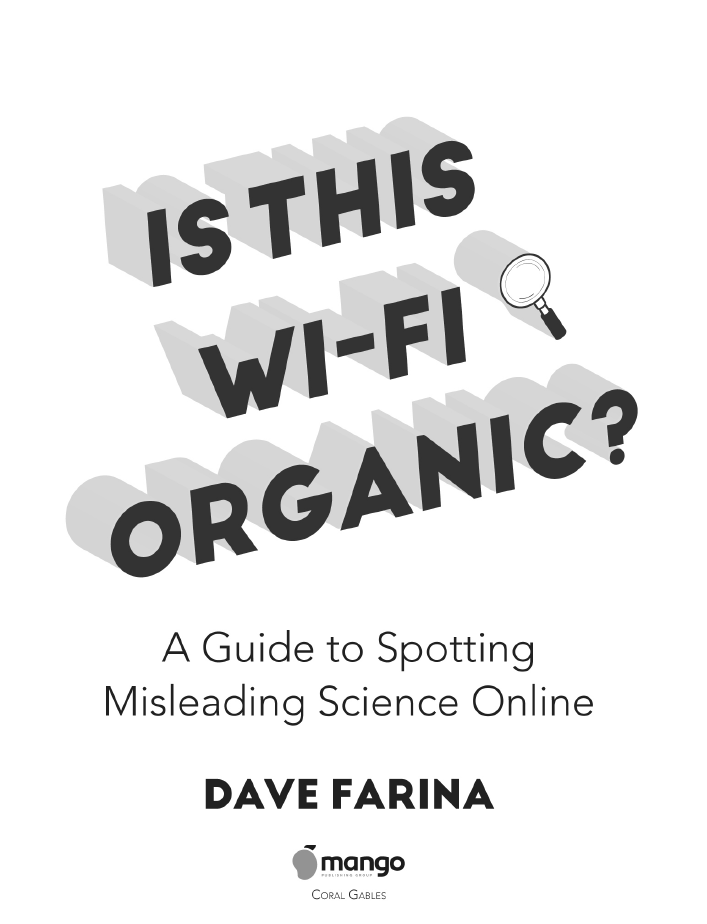
Copyright 2021 by Dave Farina.
Published by Mango Publishing Group, a division of Mango Media Inc.
Cover Design: Elina Diaz
Cover Photo/illustration: stock.adobe.com/neapneap and
stock.adobe.com/MUSYAROFAHBT
Layout & Design: Elina Diaz
Mango is an active supporter of authors rights to free speech and artistic expression in their books. The purpose of copyright is to encourage authors to produce exceptional works that enrich our culture and our open society.
Uploading or distributing photos, scans or any content from this book without prior permission is theft of the authors intellectual property. Please honor the authors work as you would your own. Thank you in advance for respecting our authors rights.
For permission requests, please contact the publisher at:
Mango Publishing Group
2850 S Douglas Road, 2nd Floor
Coral Gables, FL 33134 USA
For special orders, quantity sales, course adoptions and corporate sales, please email the publisher at or +1.800.509.4887.
Is This Wi-Fi Organic? A Guide to Spotting Misleading Science Online
Library of Congress Cataloging-in-Publication number: 2020946575
ISBN: (print) 978-1-64250-415-6, (ebook) 978-1-64250-416-3
BISAC category code SCI080000, SCIENCE / Essays
Printed in the United States of America
For my father, Vittorio, and my son, Reza.
May the thirst for knowledge p erpetuate.
Table of Contents
Introduction
Lets play a game of word as sociation.
Science
Let this word simmer in your mind for a moment. Examine every texture. Taste the nuance. What does this word make you think of? How does it make you feel?
Do you imagine futuristic cityscapes? Do you fee l hopeful?
Do you picture billowing smokestacks? Do you feel terrified?
Does it remind you of school? Does that hold a positive or negative connotatio n for you?
As to what you envisioned, it may have been any of the above, or something totally different still. But the general consensus of the American public on this matter can be quite easily traced through recent history. In the years following World War II, the American economy was booming. The middle class was gainfully employed, adequately fed and sheltered, and filled with optimism. Because of this, science was viewed as a gleaming obelisk of limitless advancement. It was Disneylands Tomorrowland. It was the Jetsons. It was longevity and p rosperity.
But over the decades that followed, this attitude changed. Administrations came and went. Post-war prosperity slowly dwindled, giving way to capitalism as we know it today, a poorly regulated industrial playground, absorbing wealth from the citizenry like a sponge. On this front, a resurgence of economic inequality suppressed what had briefly been a growing middle class. On another front, evidence of sustained environmental damage began to surface. Once these technology-enabled disasters came to outweigh the sheer excitement of the moon landing, that shiny obelisk was replaced with a barrel of toxic green goo. This trend in corporate practice is not exclusive to American corporations, nor is the resulting anti-establishment sentiment exclusive to the American public. These issues span the globe, infiltrating every nook and cranny of our civ ilization.
It is not surprising that there is widespread distrust of large corporations today. They are to blame for so much pollution and injury, and betrayal runs deep. But far too often, this distrust of industry is misplaced onto science itself. It is not just Big Business that is greeted with skepticism; the foundation of knowledge that commerce has built itself upon is also in question. We must make every effort possible to keep these two distinct entities separate. In one realm sits the undeniably valid scientific principles upon which technological progress rests, an ostensibly neutral body of knowledge. A separate realm contains all of the people and institutions that produce said progress, and the accompanying large-scale social change, for better or for worse. The latter camp must be judged for its actions on a case-by-case basis, without sullying the reliability of scientific knowledge, because while people have motives, information does not. In other words, although science denial is sometimes rooted in justifiable sentiment, it is not rooted in logic, and therefore simply is not the answer to our problems.
The dangers of rejecting our fundamental knowledge of nature are compounded in the information age, whose crowning achievement is the almighty internet. Although this invention has only been in widespread use for a mere two decades, it is already utterly and inextricably embedded in the functionality of our civilization. The internet is how we do things, and it is how we know things. It is how we communicate with one another. It is how we know which movies are playing this weekend, where to find the best Italian restaurant, or what the weather is like before looking out the window. Beyond trivialities, however, the internet is also the way many people probe the nature of reality to amass a worldview. Continuing the trend set into motion by the printing press nearly six centuries ago, the internet represents the ultimate democratization of information. There we find all of the information, updated in real time, essentially for free, apart from costly primary scientific literature. Anyone can access this mountain of data, and anyone can throw whatever they please onto the pile. While there are tremendous benefits to this paradigm shift, as it has become increasingly difficult to censor information, the transparency comes at a price. We have condemned ourselves to perpetually sifting through a digital cacophony of contradiction that often leaves truth obscured.
Prior to the internet, there were sources of information that were unanimously agreed upon to be trustworthy and reliable. Stories published by newspapers had to be heavily researched by professional journalists. Knowledge from an encyclopedia was not questioned by those who needed to reference a fact, because they were written by top specialists in every discipline, which contributed to their considerable cost. Whether we regard them as good or bad, those times are gone, and they are never coming back. Unlike the encyclopedias of old, the quality of information on the internet is not reliable. It ranges from outstanding to abysmal. For this reason, the internet can serve as a magic mirror, a place where people go to confirm pre-existing bias. Outlets that reflect what we already know are correct and trustworthy. Those that do not are ignored, deemed fraudulent, deceitful, paid for by malevolent institutions, or worse. This method of assessment rarely has any respect for the qualifications of those who produce the content we encounter, which has led to what is popularly referred to as the post-t ruth era.
In this relatively new era, irrefutable facts and the firm consensus of the scientific community are often eschewed in favor of charlatans who peddle nothing more than a flashy narrative. Such pseudoscientific narratives have become popular for a number of reasons. On a more subtle and philosophical level, we are susceptible to wishful thinking. Science offers us a cold and indifferent universe, a narrative that is antithetical to the divinely ordained status humanity has grown accustomed to over the millennia. But the appeal to pseudoscience also arrives largely in response to harmful practices enacted by the aforementioned large corporations. And because anti-corporate sentiment is so widely held, it has become trivial to fool large sectors of the population with a handful of buzzwords and scar e tactics.
Font size:
Interval:
Bookmark:
Similar books «Is This Wi-Fi Organic?: A Guide to Spotting Misleading Science Online (Science Myths Debunked).»
Look at similar books to Is This Wi-Fi Organic?: A Guide to Spotting Misleading Science Online (Science Myths Debunked).. We have selected literature similar in name and meaning in the hope of providing readers with more options to find new, interesting, not yet read works.
Discussion, reviews of the book Is This Wi-Fi Organic?: A Guide to Spotting Misleading Science Online (Science Myths Debunked). and just readers' own opinions. Leave your comments, write what you think about the work, its meaning or the main characters. Specify what exactly you liked and what you didn't like, and why you think so.

